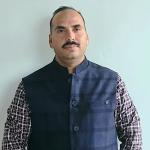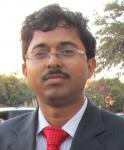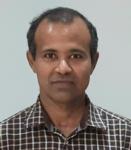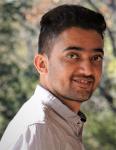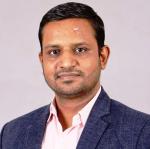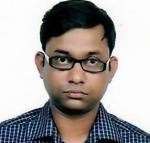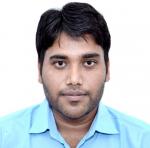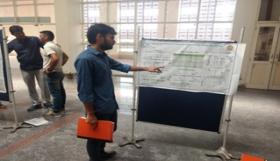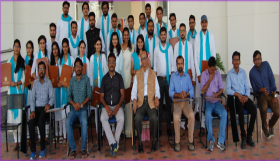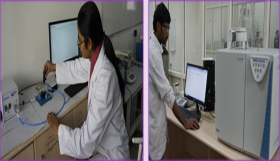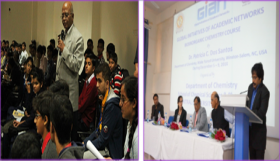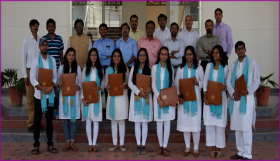| Sr. No. | Name of Faculty | Project Title | Funding Agency | Duration | Project Grant (In Lakhs) |
| 1 | FIST GRANT | DST-FIST (Level 1 category) | DST | 2016- 2021 | 70.5 |
| 2 | Prof. R. T. Pardasani | A divergent synthesis of benzazoles via direct C-H activation and their cytotoxic activity: A way to cancer research | SERB | 2017-2020 | 25.6 |
| 3 | Dr. Easwar Srinivasan | Synthesis and studies on catalytic performance of novel ion-tagged recyclable chiral organocatalysts generated from suitable dipeptides | DST | 2014-2017 | 25.2 |
| Studies towards the synthesis of protoberberine based natural products | UGC | 2015-2017 | 6.00 |
| Design of Novel Bifunctional Amine-Urea/Thiourea Catalysts for Asymmetric C-C Bond Forming Applications | CSIR | 2017-2020 | 25.1 |
| Studies on the organocatalytic enantioselective construction of tetrahydroxanthenones | SERB | 2018-2021 | 43.3 |
| Investigation of Diverse Reactivity Patterns in Morita-Baylis-Hillman Ketones to access Biologically Significant Heterocyclic Scaffolds | SERB | 2022-2023 | 33.4 |
| 4 | Dr. Chandrakanta Dash | Designing novel late transition metal catalysts for atom/group transfer reactions | SERB | 2015-2018 | 25.0 |
| Activation of Small molecules by transition metal ions | UGC | 2016-2018 | 6.0 |
| 5 | Dr. M. Bhanuchandra | Development of sustainable reactions and methods using dibenzothiophene 5,5-dioxide: synthesis of pi-conjugated systems | SERB | 2017-2020 | 38.7 |
| Development of Novel Strategies for the Construction of Benzothiophene Dioxide | UGC | 2017-2019 | 10.0 |
| Transition Metal-Catalyzed C-H Nitrogenation and Oxygenation of Arenes using Sulfoxides as Functionalizable Directing Groups | SERB | 2018-2021 | 36.3 |
| Regiocontrolled Direct C-HSelenation, Arylation, and Homoallylation of (Hetero)arenes: Synthesis of Medicinally Important Molecules | SERB | 2023-26 | 33.06 |
| 6 | Dr. Anuj Sharma | Smart metal chelators for MRI contrast Agents | DST | 2014-2019 | 35.0 |
| Multifunctional Small Molecules based on Azo-Stilbene Molecular Framework as Amyloid Imaging Agents and Metal Chelators for Controlling Metal Induced-Neurodegenrative Diseases | SERB | 2016-2019 | 54.2 |
| Design and Synthesis of Selected Transition Metal (Fe, Ru, Rh, Ir) complexes/Arene Complexes and Investigating their Anticancer Potential | UGC | 2018-2020 | 10.0 |
| Crystal Engineering and Molecular Magnetism in some 3d bivalent metal organic framework (*Mentor of Dr. Kishalay Bhar, NPDF) | SERB-NPDF | 2017-2019 | 19.2 |
| Thermal and Photo Induced Iron (II) Spin Crossover Materials Using Smartly Designed bi-, tri- and tetradentate N-donor Legands | CSIR | 2021-2024 | 19.78 |
| Conjugated approach for more effective Cu and Ru Metal Based Molecular Agents with Enhanced Anti-Cancer Potential and Reduced Side-Effects | SERB | 2022-2025 | 25.4 |
| 7. | Dr. Thirumoorthi R. | Synthesis, Structure and Magnetic Properties of Polymetallic Cages | UGC | 2018-2020 | 10.0 |
| Synthesis, Structure and Optical Study of Phosphane and/or Chalcogen Stabilized Gold Complex | SERB | 2015-2018 | 23.0 |
| Half-Sandwich Organo Tellurium Oxides/Hydroxides: An Alternative Reagent in Organic Synthesis | CSIR | 2019-2022 | 9 |
| 8. | Dr. Partha Roy | Development of the Various One-dimentional TiO2 nanostructures | UGC | 2018-2020 | 10.0 |
| Probing the Charge Transfer Mechanism in Exciplex System using lifetime Measurement | SERB | 2019-2022 | 19.08 |
| Engineering of Resilient Super hydrophobic Coating using Ti02 Nanostructured in combination with Ultra thin Conformal Layer of Organic Molecules | SERB | 2019-2022 | |
| 9. | Dr. Anurag Prakash Sunda | Ab initio Molecular Dynamics simulation of Ionic Liquid doped Polymer Electrolyte Membranes and Platinum Electrode Interface | DST | 2015-2020 | 35.0 |
| 10. | Dr. Ch Gupta Chandaluri | Block Copolymer–DNA based Template for Conductivity Tunable Polyaniline Electronic Devices | DST | 2017-2022 | 35.0 |
| 11 | Dr. Jony Saha | Development of Mn, Fe, Co and Ni based ordered mesoporous metal phosphate materials and their application as catalysts in electrochemical water oxidation | DST | 2017-2022 | 35.0 |
| 12 | Hemant Joshi | DST Inspire faculty fellow | DST | 2018-2023 | 83 |
| Intramolecular Secondary Interactions Controlled Molecular Rotors as Catalyst for Site Selective Annulation Reactions to Synthesize Energetically less Favored Isomers | SERB | 2021/23 | 33 |
| 13 | Ritesh Singh | DST Inspire faculty fellow | DST | 2015-2020 | 83 |
| Synthetic Exploration of Aza-oxyallyl Cation for Rapid Access to Bio-relevant Florinated Scaffolds and their Biological Evaluation | SERB | 2020-2023 | 54.7 |
| Bio-catalytic Hetero(aromatic) C-H amination (Mentor to N-PDF, Dr Asish Gupta) | SERB | 2021-23 | 19.20 |
| 14 | S. Rajagopala Reddy | Theoretical Study of Intramolecular Singlet Fission | UGC | 2021-23 | 10 |
| Quantum Nonadiabatic Dynamics of Large Amplitude Motions | SERB | 2021-23 | 33 |
| Total | 1022.1 |


